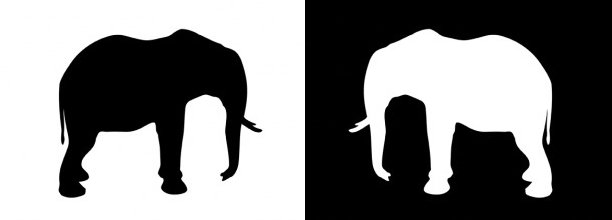Girard Digest 3: Inverse Imitation
Mar. 8th, 2019 05:04 pmThe opposite of imitation is also imitation.
Meaning: If you define yourself by what you are not – holding up an example of what not to be, how not to do it – you are still using that person (or group, or identity, or whetever) to draw the lines; you're just putting yourself on the other side of those lines. You are, essentially, making a mirror image of them. The mirror image of an elephant is a reverse elephant, not a newspaper, or a galaxy.
Therefore, the more you define yourself in opposition to something, the more you resemble that thing, albeit in reverse. Horseshoe Theory describes this in very narrow political terms, but in the abstract it applies to all identities, not just political ones.
Example: on the radio show Genius, someone claimed to be able to identify the perfect opposite of anything. When asked to find the opposite of a sausage, he imagined one of those kebab spit-turning things, but going so fast that all the meat flies off. This is indeed a hilarious hypothetical anti-sausage – but it is like a sausage in its cylindrical meatiness, allowing the sausage to define the terms of the argument.
Most identities are a mix of imitation and inverse imitation, so you never get a perfect reproduction or a perfect mirror image, but it's important to understand that imitation – and its unconscious brother, mimesis – works both ways.
Chapter 4: Desire

Meaning: If you define yourself by what you are not – holding up an example of what not to be, how not to do it – you are still using that person (or group, or identity, or whetever) to draw the lines; you're just putting yourself on the other side of those lines. You are, essentially, making a mirror image of them. The mirror image of an elephant is a reverse elephant, not a newspaper, or a galaxy.
Therefore, the more you define yourself in opposition to something, the more you resemble that thing, albeit in reverse. Horseshoe Theory describes this in very narrow political terms, but in the abstract it applies to all identities, not just political ones.
Example: on the radio show Genius, someone claimed to be able to identify the perfect opposite of anything. When asked to find the opposite of a sausage, he imagined one of those kebab spit-turning things, but going so fast that all the meat flies off. This is indeed a hilarious hypothetical anti-sausage – but it is like a sausage in its cylindrical meatiness, allowing the sausage to define the terms of the argument.
Most identities are a mix of imitation and inverse imitation, so you never get a perfect reproduction or a perfect mirror image, but it's important to understand that imitation – and its unconscious brother, mimesis – works both ways.
Chapter 4: Desire

no subject
Date: 2019-03-10 03:56 am (UTC)To quote Rachel Green: "Oh my God. I've become my father! I've been trying so hard not to become my mother, I didn't see this coming."